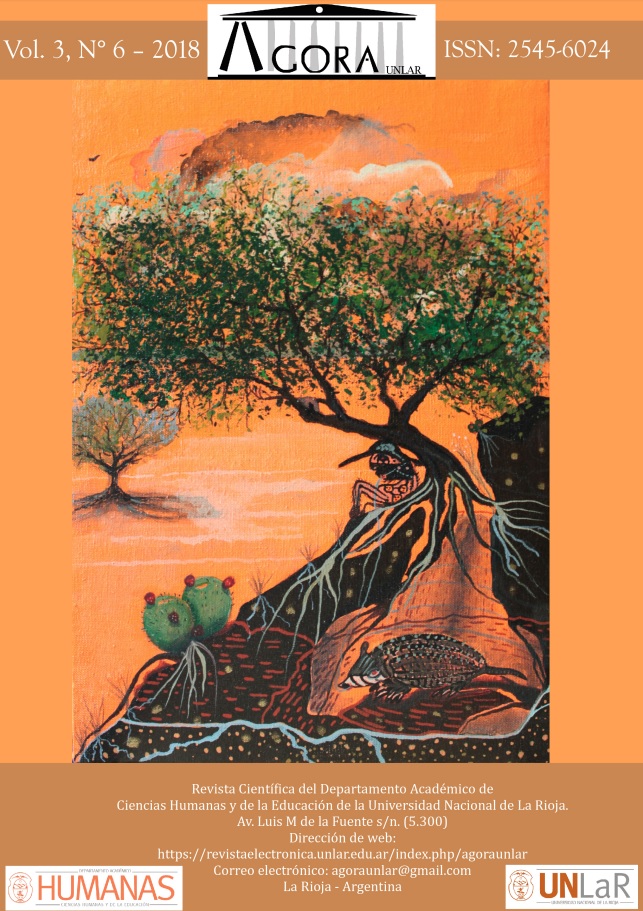LOS AÑOS DE ETA EN PATRIA, DE FERNANDO ARAMBURU
Palabras clave:
Euskadi, ETA, Fernando Aramburu, Patria, relatoResumen
En las producciones literarias recientes destacan diversas representacionesde lo íntimo y lo privado en autobiografías, autoficciones, memorias, cartas yconfesiones. Un subgénero particularmente atendido es el de la autoficción,una ficción de acontecimientos estrictamente reales; “una estructura híbridaque presenta lo imaginario como real y que no es una apología de lafalsificación sino todo lo contrario.” (Alberca, 2007) Este trabajo pretendeexplorar los recursos autoficcionales empleados en Patria (2016) por el escritordonostiarra Fernando Aramburu. El autor inserta en la novela experienciaspersonales, y expone su posición en torno a la presencia y acción de ETAen Euskal Herria. Así, se presenta en la novela como el escritor participantede un coloquio sobre víctimas de la violencia en el país vasco; ciertas señasde identidad propias del autor real funcionan como ratificador de veridicciónde las palabras transcriptas en el texto, las efectivamente pronunciadas porAramburu en el coloquio mencionado. El autor, perfectamente conscientede los alcances y efectos de la autoficcionalidad, la emplea aquí a fin depotenciar los efectos de su mensaje en el receptor, a la par que refuerzasu versión del relato, pretendidamente orientador de una nueva concienciahistórica y social, según veremos. ETA YEARS IN PATRIA, BY FERNANDO ARAMBURUABSTRACTRecent literary productions include various representations of the intimate and private in autobiographies, autofictions, memoirs, letters and confessions. A particular subgenre is that of self-fiction, a fiction of strictly real events; «A hybrid structure that presents the imaginary as real and is not an apologia for falsification, but rather the opposite.» (Alberca, 2007) This work tries to explore the autofictional resources used in Patria (2016) by the writer Fernando Aramburu. The author inserts personal experiences in the novel, and exposes his position on the presence and action of ETA in Euskal Herria. Thus, it is presented in the novel as the writer participant of a colloquium on victims of violence in the Basque country; certain signs of identity of the real author function as a ratifier of veridicción of the words transcribed in the text, those effectively pronounced by Aramburu in the mentioned colloquium. The author is perfectly aware of the scope and effects of autofictionality, and uses it here to potentiate the effects of his message on the receiver. In this way, he reinforces his version of the story, supposedly guiding a new historical and social consciousness, as we shall see.Key words: Euskadi; ETA; Fernando Aramburu; Patria; storyDescargas
Publicado
03-12-2018
Número
Sección
ARTÍCULOS DE INVESTIGACIÓN O REVISIÓN TEÓRICA





